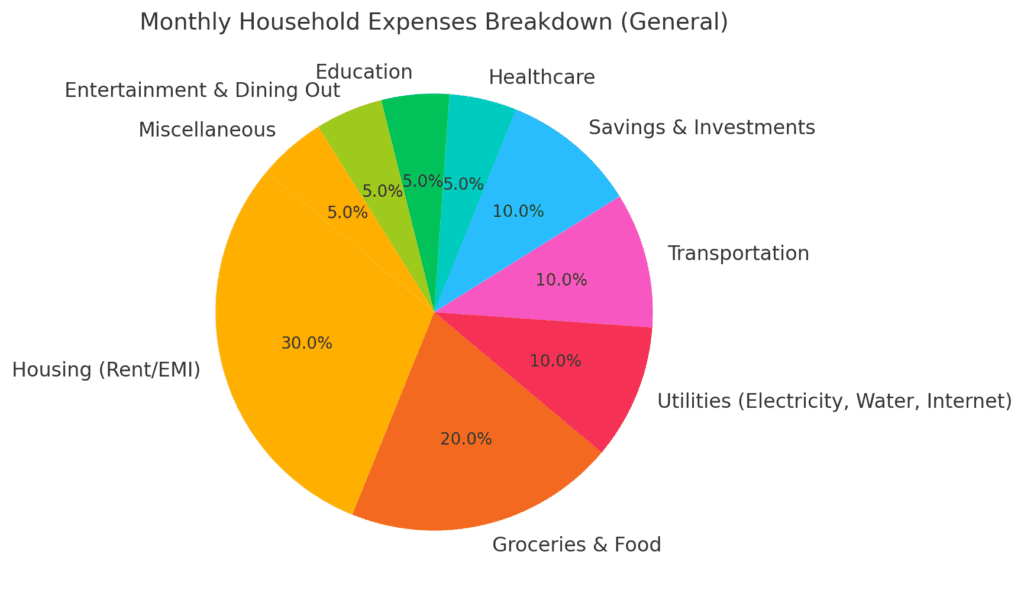“Money isn’t everything, but everything needs money.” – Anonymous
If the idea of checking your bank balance makes you break into a cold sweat, you’re not alone. Personal finance can feel daunting—but it doesn’t have to. With the right tools, mindset, and a bit of planning, you can transform financial stress into confidence and control.
📊 What Is Personal Finance?
Personal finance is how you earn, budget, save, invest, and protect your money to meet life goals. It covers:
- Income management (salary, side hustles)
- Expense tracking (bills, groceries)
- Savings & emergency funds
- Investments (mutual funds, stocks)
- Debt management (loans, credit cards)
- Insurance & retirement planning

“Learning to manage your money is like learning to ride a bicycle. The sooner you start, the better you ride.”
🔍 Budgeting Basics: Your Financial Roadmap
A budget is your financial GPS. It tells every rupee where to go. According to Investopedia, budgeting helps you:
- Avoid overspending
- Build savings
- Plan for goals
Budgeting Methods Compared
| Method | How It Works | Best For |
|---|---|---|
| 50/30/20 Rule | 50% needs, 30% wants, 20% savings/investments | Beginners seeking simplicity |
| Envelope System | Cash for each category in labeled envelopes | Those who overspend on cards |
| Zero-Based Budget | Assign every rupee a job until income minus expenses = 0 | Detail-oriented planners |
| Kakeibo (Japanese) | Monthly journaling of income & expenses | Mindful spenders & habit builders |
Find more on budgeting in our first-salary guide
🏦 Building Your Emergency Fund
Life is unpredictable. An emergency fund of 3–6 months’ expenses shields you from sudden job loss or medical bills. Start small:
- Open a high-yield savings account (e.g., RBI‑backed banks).
- Automate
5–10%of income each month. - Celebrate milestones—₹10,000, ₹25,000, and so on.
Pro Tip: Treat it like a recurring “bill” you can’t skip.
📈 Investing for Beginners
Once your budget and safety net are set, let your money grow. Investing isn’t gambling—think of it as planting seeds that flourish over time.
- Mutual Funds (SIPs): Low-cost, diversified portfolios.
- Index Funds: Track market indices, minimal fees.
- Stocks: Higher risk, higher reward—start small and research.
According to a Morningstar report, SIP investments have grown at an annualized rate of 12–15% over the past decade.
“Compounding is the eighth wonder of the world.” – Albert Einstein
💳 Managing & Avoiding Bad Debt
Debt can be a tool—if used wisely. But credit-card balances and payday loans trap you in high interest.
- Good Debt: Home loans, education loans (low rates, long terms).
- Bad Debt: High‑interest credit cards, personal loans for non‑essentials.
Strategies to eliminate bad debt:
- Snowball Method: Pay smallest balance first.
- Avalanche Method: Pay highest interest rate first.
- Balance Transfer: Move debt to 0% interest card temporarily.
🧰 Essential Financial Tools & Apps
Technology makes managing money easier. Here are our top picks for 2025:
- Walnut (Expense Tracker) – Automatic expense categorization.
- Groww / Zerodha (Investing) – Simple SIP and stock trading.
- Monefy (Budgeting App) – User‑friendly, cross‑device sync.
- Cred (Credit Score) – Track & improve credit health.
Insider Tip: Set daily or weekly reminders to review these apps—consistency is key.

🌱 Personalizing Your Financial Plan
No two journeys are alike. Customize by:
- Setting SMART Goals (Specific, Measurable, Achievable, Relevant, Time‑bound).
- Reviewing Quarterly—adjust for raises, new expenses.
- Incorporating Values—charity giving, ethical investing, family priorities.
“A goal without a plan is just a wish.” – Antoine de Saint‑Exupéry
📚 Further Reading & Resources
🤝 Internal Links to Grow Your Knowledge
- How to Create Your First Budget
- Emergency Fund Planning 101
- Mutual Funds vs Stocks
🚀 Ready to Take Control?
Managing your money is a journey, not a destination. The earlier you start, the more freedom you gain. Share your biggest personal finance challenge in the comments below or subscribe for weekly finance tips straight to your inbox! ✉️
Call-to-Action (CTA):
💡 Join our newsletter for exclusive budget templates, investment checklists, and expert Q&As—click “Subscribe” now and take your first step toward financial freedom!
📢 Disclaimer: “Money Advisor is operated by a SEBI-registered Mutual Fund Distributor (ARN-129675). The content on this blog is for informational purposes only and should not be considered as investment advice. Mutual Fund investments are subject to market risks. Please read all scheme-related documents carefully.”




Pingback: Why Most Indians Fail at Financial Planning? How You Can Win?